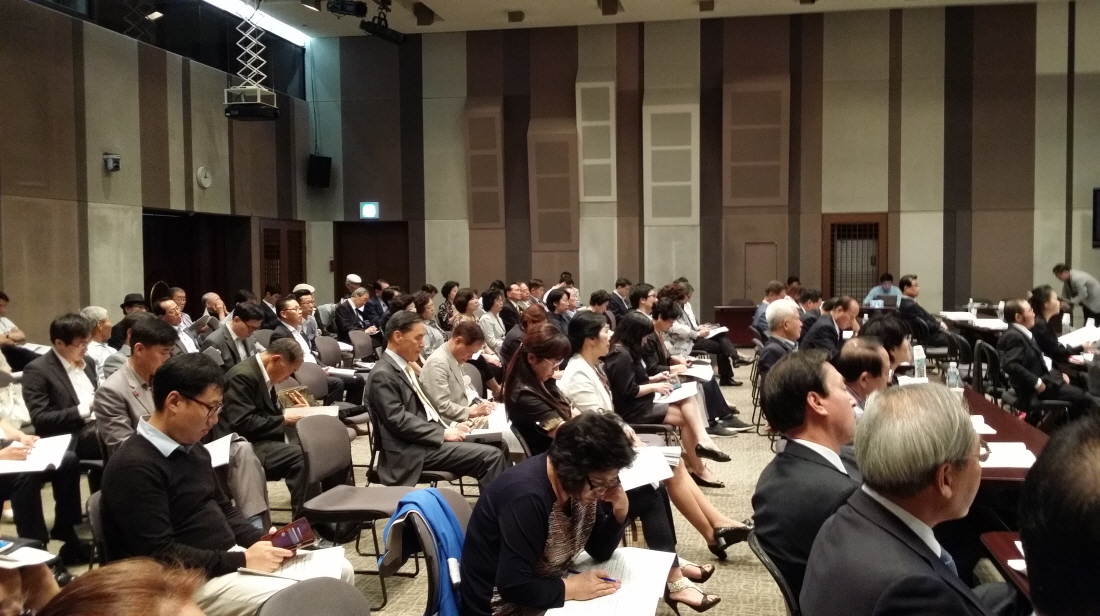A discussion has been called for on the need to ensure that students at Korean schools in Japan receive equal educational opportunities, as it is impossible to provide an international standard of education to students under the current education system of Korean schools in Japan.
The Symposium on the Development of Korean Schools in Japan was held at 2:00pm, Tuesday, September 15 in the International Conference Hall of the Korea Press Center with Oh Gong-tae, Vice-chairperson of the Japan Provincial Assembly of NUAC.
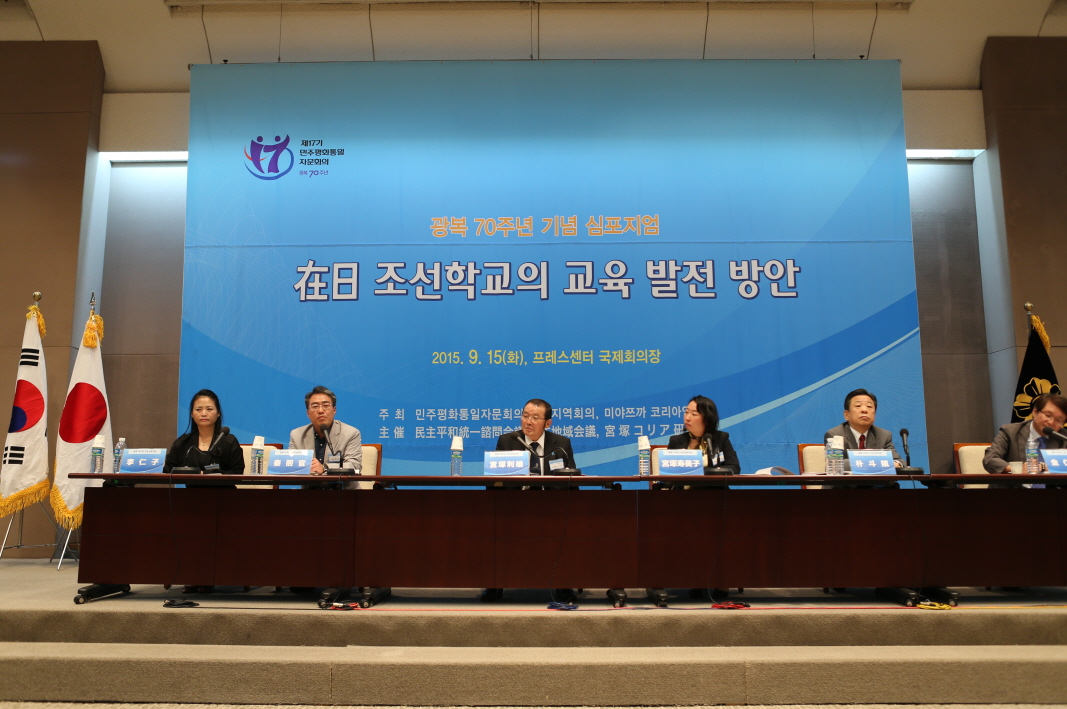
Symposium - Photo of Discussion Session
The symposium was held to draw Korean people's attention to the conditions of Korean schools in Japan and to discuss methods of providing equal opportunities in education to students at Korean schools in Japan. It was held jointly with the Miyazka Korea Research Institute, which is similarly dedicated to studying the problems of Korean schools in Japan and raising awareness of them among the Japanese public.
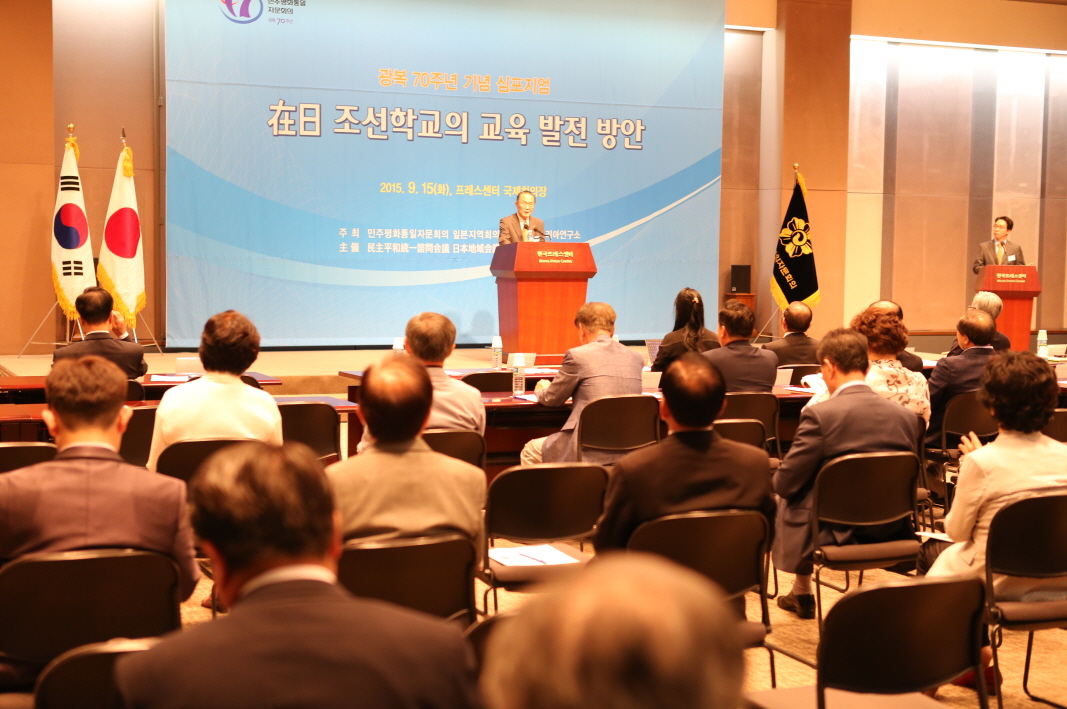
Opening Address
Oh Gong-tae, Vice-chairperson of the Japanese Chapter, hosted the symposium, while his opening address was read out by Lim Sam-ho, Assistant Director of the HQ of the Mindan. The opening address read: "I deeply regret that we Koreans have not been able to provide equal educational opportunities to all Korean-Japanese students, who represent an important asset for our nation. Ethnic minority education in Japan is largely divided into two categories, namely, that provided by private organizations and that led by the pro-Pyeongyang Federation of Korean Residents in Japan. So far, many problems with pro-Pyeongyang schools have been identified, thus raising the need for a balanced education program.
It is important for us to come up with solutions that enable teenage Korean-Japanese students to receive a balanced education and develop into rounded individuals who will ultimately contribute to our nation and to the wider international community." He ended the opening address by asking Korea to take an interest in the symposium.
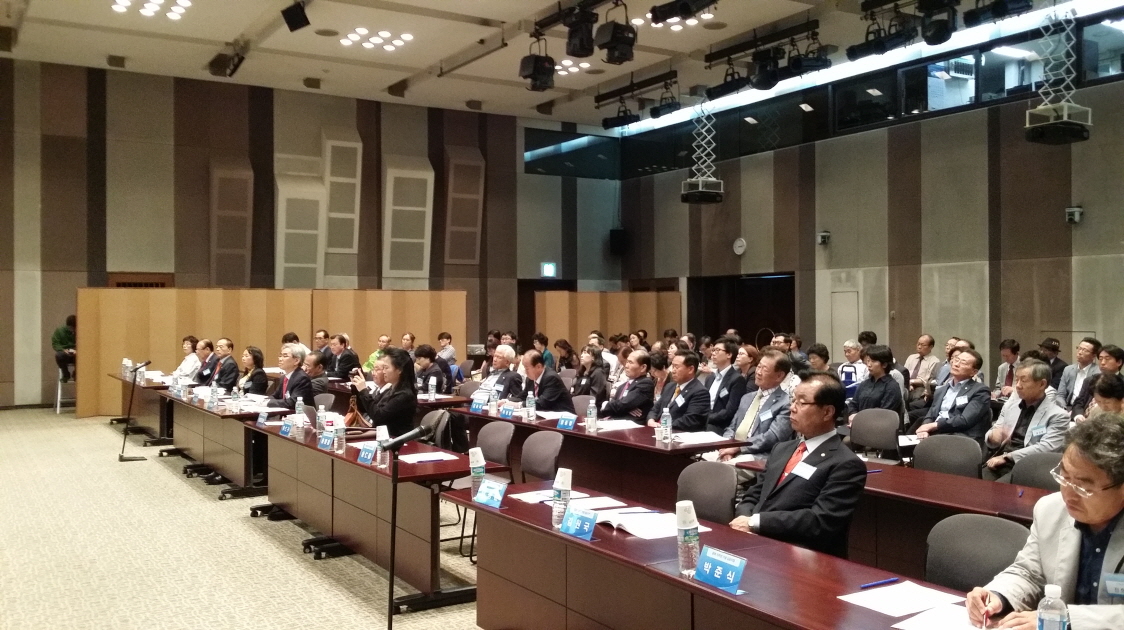
Audience at the Symposium
The symposium was attended by over 140 people including the eight chiefs of the municipal chapters in Korea, the council members, and distinguished figures from different spheres of social activity.
Secretary General Park Chan-bong gave a congratulatory speech, in which he said, "The situation of Koreans living in Japan is one of the issues we must address in celebrating the 70th anniversary of Korea's liberation. The pro-Pyeongyang Federation of Korean Residents in Japan is akin to a North Korea outside North Korea, with the same problems and contradictions. For this reason, we must examine the situation of the next generation of the federation and the kind of education they're receiving."
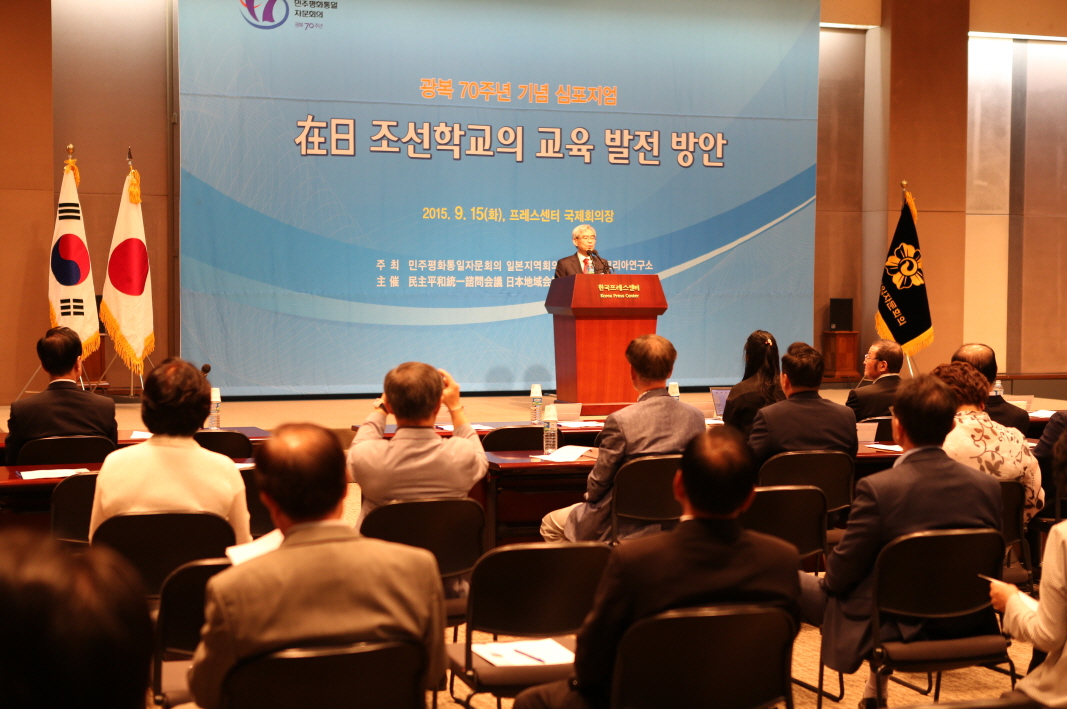
Secretary General Park Chan-bong giving a congratulatory speech
Park demonstrated his profound interest in the symposium by remaining there until the last minute.
He added, "Receiving a North Korean-style education will make it difficult for the students to become fully integrated members of the international community. The pro-Pyeongyang Federation of Korean Residents in Japan is still turning students into their members. So, for the sake of integration, we need to identify the kinds of problems inherent to such a style of education and develop solutions to correct them."
The opening ceremony was followed by a number of presentations and discussions.
The presentations were given by Miyazuka Toshio, President of the Miyazuka Korea Research Institute, who has been studying the issues surrounding Korean schools in Japan for many years; Park Du-jin, director of the Korea Center for International Studies; and Lee In-ja, a professor at Tohoku University. The topics of their presentations were as follows: "Why should we discuss issues regarding Korean schools in Japan?” “Education at Korean schools in Japan is comparable to the civic education of North Korea" and "Solutions for implementing ethnic minority education in Japan."
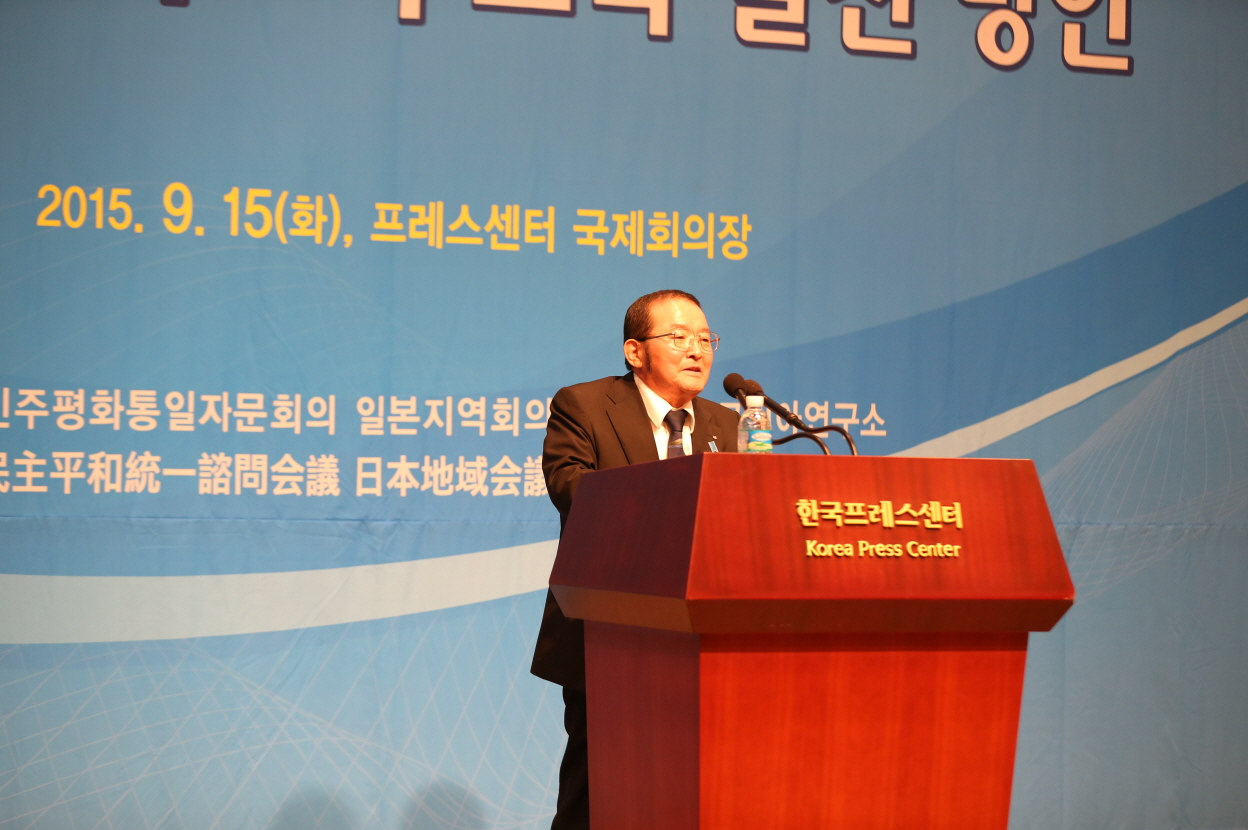
Miyazuka Toshio, President of the Miyazuka Korea Research Institute
Miyazuka Toshio said, "Korean schools in Japan actually teach the Juche ideology founded by Kim Il-sung, and the content is identical to that taught in North Korea. For many years, Korean schools in Japan have been used to spread this ideology and brainwash the students under the pretext of providing ethnic minority education.
The pro-Pyeongyang Federation of Korean Residents in Japan should not misuse or embezzle the subsidies provided by the local governments of Japan."
Director Park Du-jin, a former professor at Chosun University, elucidated the issue, saying, "The total number of students at Chosun University has dropped to a mere 120 despite it being the leading Korean university in Japan. The fundamental reason for this decline is that the pro-Pyeongyang Federation of Korean Residents in Japan has been reduced to a subordinate organization of North Korea, and has consequently transformed ethnic minority education into a vehicle for the civic education of North Korea."
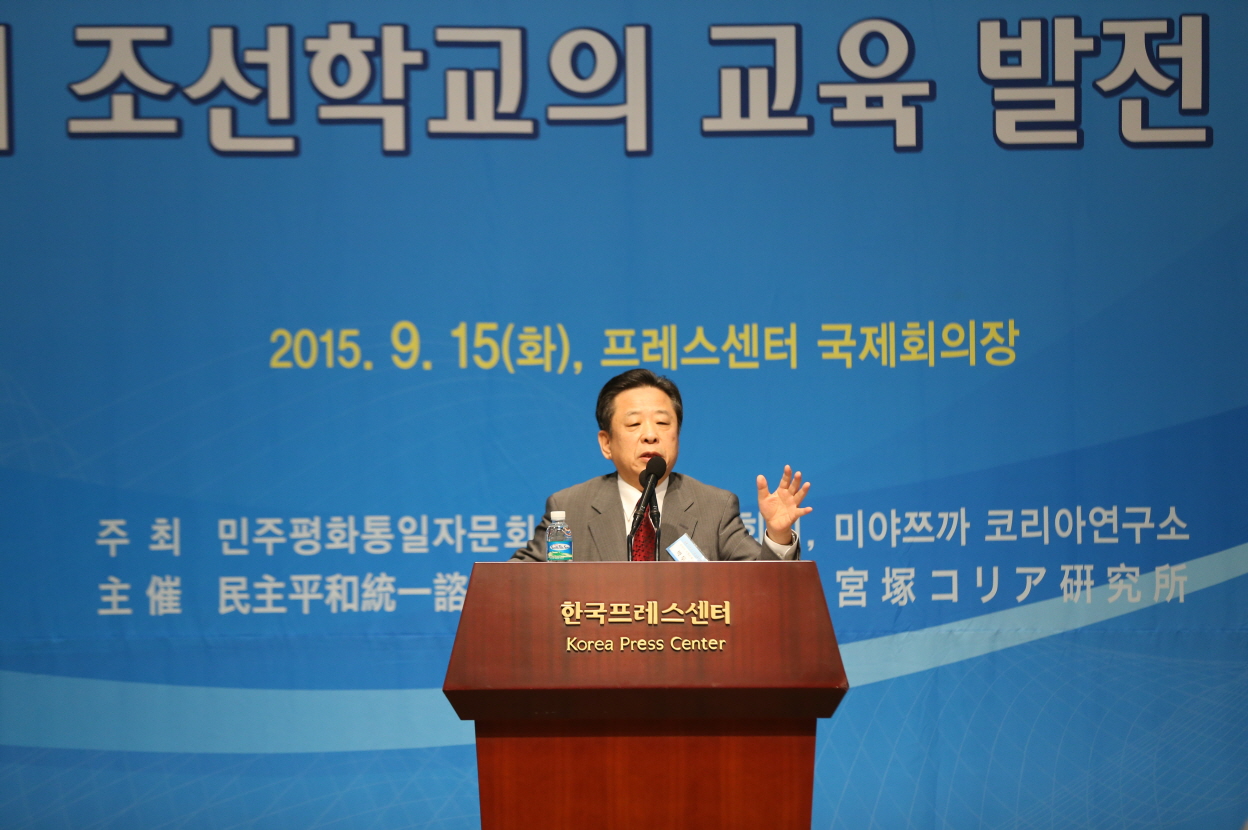
Park Du-jin, Director of the Korea Center for International Studies
In order to revert the Korean schools in Japan to institutions of ethnic minority education, Park proposed that "We need to increase the number of schools dedicated to truly democratic ethnic minority education in order to replace the current Korean schools in Japan; to develop solutions for Korean students with Korean citizenship studying at Korean schools in Japan by thoroughly examining the conditions of Korean schools in Japan; and to regulate some of the organizations in South Korea that stand in the way of efforts to reform Korean schools in Japan.
Lee In-ja, a professor at Tohoku University, presented the case of an informal social gathering held Gonae-ri in Jeju-do to illustrate the kind of education and activities needed to enable newcomers to Japan to settle in.
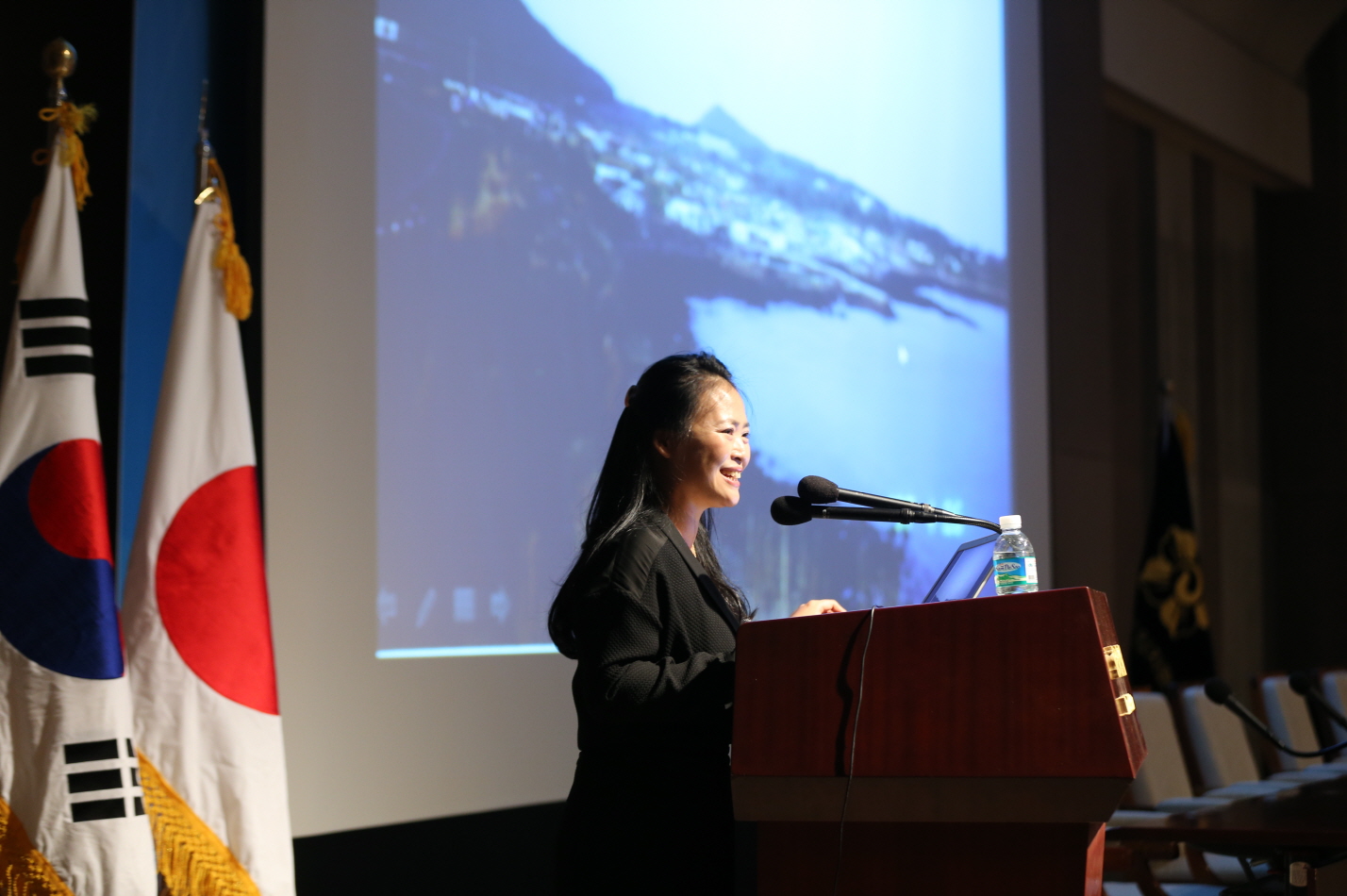
Lee In-ja, a professor at Tohoku University
The presentations were followed by a discussion session attended by Jin Hui-gwan, a professor at Inje University, and Kim In-deok, a professor at Cheongam College (Assistant Director of the Korean Research Institute for Korean Residents in Japan).
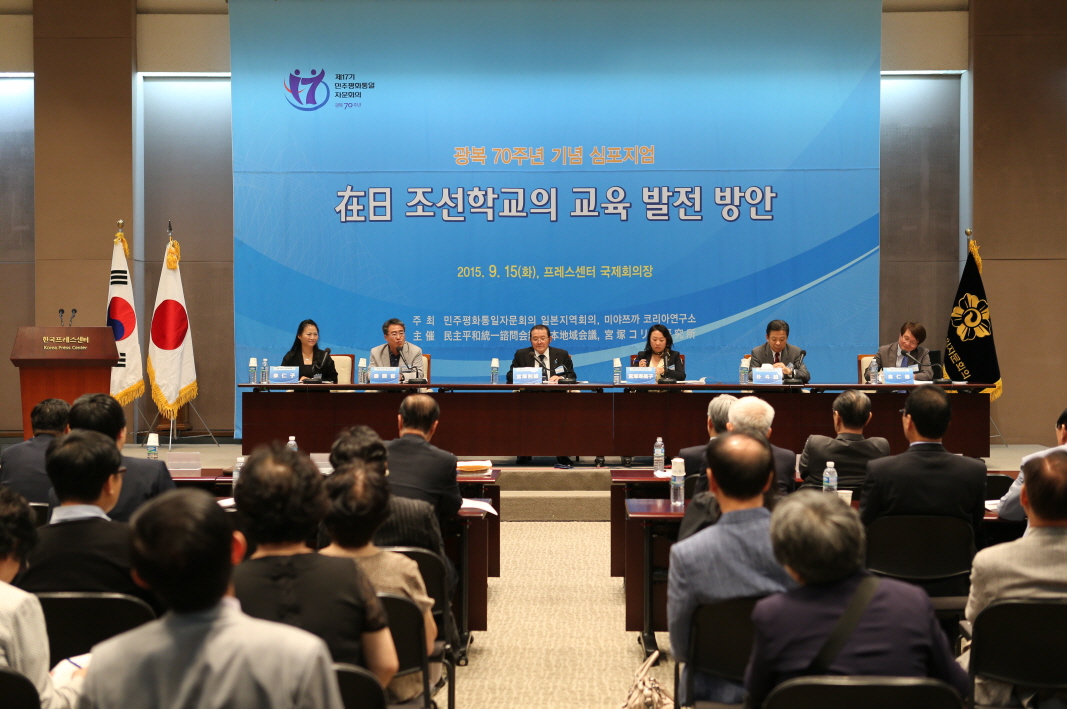
Discussion Panel
The panel members and audience engaged in a question and answer session, and agreed that they needed to come up with solutions that will allow students at Korean schools in Japan to receive a balanced education that meets international standards and to develop into integrated members of modern society.
The symposium, attended by 140 people from the 25 municipal chapters in Seoul and other spheres of activity, concluded with the common consensus of the participants that the problems facing Korean schools in Japan urgently need to be addressed and resolved in preparation for the unification of Korea.










